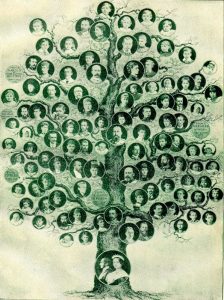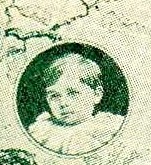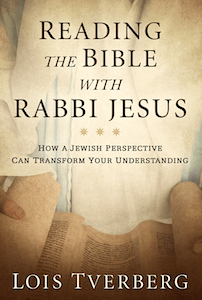 If you walk into any bookstore, you’ll find an enormous section called “romance,” full of steamy love affairs. Even if you shop in the “mystery” or “adventure” sections, nearly every story will have a “love interest” as a subplot. It seems like no story can be told without it. How will the lonely hero find a soul mate and live happily ever after?
If you walk into any bookstore, you’ll find an enormous section called “romance,” full of steamy love affairs. Even if you shop in the “mystery” or “adventure” sections, nearly every story will have a “love interest” as a subplot. It seems like no story can be told without it. How will the lonely hero find a soul mate and live happily ever after?
Our culture prioritizes finding romantic love, assuming that “living happily ever after” is the key to life well-lived. Until you discover your one true love, you’re filled with anxiety and self-questioning. So our culture resonates emotionally with this “redemption story of loneliness.”
It might surprise you that we don’t find much of this at all in the Bible. Not that we don’t see passion, like in Song of Solomon.
But for much of history, marriages were arranged. Families decided who their children would marry. You had about as much choice in who would be your spouse as you did your brothers and sisters, but you grew to love them anyhow. The key to success in life wasn’t to find a lover but to raise a bountiful family–a source of pride, love, and support when you got old.
Because of this, the Bible has a very different recurring emotional subplot—the “redemption story of barrenness.” We see it over and over: Abraham and Sarah. Isaac and Rebekah. Jacob and Rachel. Hannah and Elkanah. Elizabeth and Zechariah. Each of them faces the awful fate of dying childless. This is the worry that filled people’s prayers.
We point out how unfair it is that ancient society would see infertility as a sign of failure, but the rules of romance have harsh standards too. To compete at love, one must be attractive and charming. To be ugly or awkward is to be a social failure. Just ask anyone who’s felt the rejection of being unable to get a date. Women felt their culture’s shame more strongly then, and they feel shame more strongly in our culture too. But both sexes have never been immune to feeling like they don’t measure up.
 Once you have this in mind, the epic story of Abraham makes much more sense. He believed in God, but he and his wife Sarah were childless. God promised him the greatest of all blessings —a family that outnumbered the stars in the sky. This was the story that resonated with humanity down through the ages, when success in life was defined by having a big family.
Once you have this in mind, the epic story of Abraham makes much more sense. He believed in God, but he and his wife Sarah were childless. God promised him the greatest of all blessings —a family that outnumbered the stars in the sky. This was the story that resonated with humanity down through the ages, when success in life was defined by having a big family.
Because of Abraham’s unwavering faith, God promised him the greatest of blessings—that he would be the father of many nations. Because it was assumed that descendants would be like their forefathers, it made sense that Abraham would instill in his children his strong faith in God, and a great nation of believers would result. That’s really the overall “plot” of the Bible—how God would fulfill his promise to Abraham, and how God would use this family to bless the world.
Why was Jesus Single Then?
If having a family was so critical, why did both Jesus and Paul embrace the single life? Jesus himself noted that few will be able to accept a calling to singleness:
Not everyone can receive this saying, but only those to whom it is given. For there are eunuchs who have been so from birth, and there are eunuchs who have been made eunuchs by men, and there are eunuchs who have made themselves eunuchs for the sake of the kingdom of heaven. Let the one who is able to receive this receive it. (vv. 11–12)
Here, Jesus used the term eunuch to refer to those who are denied the very things that brought meaning and success in life—family and children. He pointed out that some have that choice made for them by nature or by other people, but some made the choice themselves in order to devote themselves to serve God.
In using the word eunuch, Jesus likely had kingdom imagery in mind, because many kings appointed only eunuchs to high offices. In order to serve a king, these men gave up the hope of having a family. The very word eunuch carried both of these implications. Besides referring to a castrated man, by the first century it also carried the connotation of being a high royal official (see Esther 2:3; Daniel 1:3; Acts 8:27). Jesus was saying that in the same way, some will be called to forgo marriage to serve in God’s kingdom. As shocking as this thought is in our culture, it would have been mind-boggling in Jesus’ family-centric world.
Eunuchs in the Temple
How could Jesus use eunuch in a positive way, considering that Deuteronomy 23:1 forbade eunuchs from entering the temple? Likely, Jesus was thinking in terms of a surprising promise that the prophet Isaiah had made about God’s glorious eschatological kingdom:
Let not the foreigner who has joined himself to the Lord say, “The Lord will surely separate me from his people”; and let not the eunuch say, “Behold, I am a dry tree.” For thus says the Lord: “To the eunuchs who keep my Sabbaths,
who choose the things that please me and hold fast my covenant, I will give in my house and within my walls a monument and a name better than sons and daughters; I will give them an everlasting name that shall not be cut off.” (Isaiah 56:3–5)
 In a culture where the growth of one’s family tree was the source of success, to be a eunuch was to be a withered, fruitless branch that might have leaves now but would soon be a lifeless stick. God, however, made an extravagant promise: he would welcome foreigners who had at one time worshiped other gods and even eunuchs who had served in their temples.
In a culture where the growth of one’s family tree was the source of success, to be a eunuch was to be a withered, fruitless branch that might have leaves now but would soon be a lifeless stick. God, however, made an extravagant promise: he would welcome foreigners who had at one time worshiped other gods and even eunuchs who had served in their temples.
God’s breathtaking declaration was that he would give eunuchs a “name better than sons and daughters.” The word translated as “name” here really refers to “renown.” One’s success in life, one’s “renown,” was measured in terms of the legacy that a person left in his or her children. But in God’s glorious kingdom, those who choose to serve him will receive a legacy even more enduring than sons and daughters. He will graft them into his own tree and give them a place of honor in his eternal family.
~~~~~
 Adapted from the chapter called “Why Jesus Needs those Boring ‘Begats”” p.113-129 in Reading the Bible with Rabbi Jesus, Baker Publishing, 2018. Available in the bookstore.
Adapted from the chapter called “Why Jesus Needs those Boring ‘Begats”” p.113-129 in Reading the Bible with Rabbi Jesus, Baker Publishing, 2018. Available in the bookstore.
(Note: Paperback version is now available – $11.99)
Sandra Herrmann says
I am only through your discussion on the title “Christ” but I want to make contact with you. You are absolutely on target that even those of us who have a seminary education learn about Jesus as though he lived in a bubble. Even worse, we learn Old Testament selections, not as a whole but those which “apply to today’s world” and again, without context. Which is just as well, since there is little understanding of how much that context differs from ours.
frank jakum says
?
Lois Tverberg says
Thanks for sharing, Sandra.
Su Ackland says
When we Westernize the Bible we miss so much. Thank you for taking us back to the Jewish perspective. It is needed so much today.
frank jakum says
Do you think that God did not know the conditions that would prevail today? We need no knowledge of past languages, The Bible is written for today with complete knowledge of today, long ago
when it was written.
Barbara Hyland says
Man was made to procreate. Eunuchs were not”whole” or perfect. Therefore they were only allowed to worship in the women’s area. However in the World to Come all of us who are Believers will be allowed to enter the “Temple “… Thanks for your thoughts on this.
Lois Tverberg says
I’m wondering where you got this information that eunuchs were allowed in the women’s court, when they weren’t allowed even in the Temple. Am I missing something?
I would say that a more likely reason eunuchs were barred from the Temple was because castration was associated with idolatrous worship, not because procreation is required to be whole or perfect. That leaves Jesus and Paul out, doesn’t it? I should mention that I’ve never been married either.
David G. Sloss says
Barbara Hyland: “In the world to come …”? If we read the account of Philip and the government official to the Ethiopian Queen, a eunuch, we read that he was reading the Scriptures and then Philip baptized him overcoming the restriction of the Temple exclusion, because of Christ. He was able to come into the presence of Almighty God because of Christ regardless of his condition! One of the many transformations accomplished by Christ!
Patrice Harrison-Inglis says
Having been “made a eunuch” by family tragedy, I am slowly learning to accept being “a dry branch” in the time of life when friends are concerned with grandchildren and “legacy”. This acceptance will be the closest I can come to choosing such a sacrifice in order to serve The High King… THANK YOU for your chapter and for the reminder of Isaiah’s words for me!